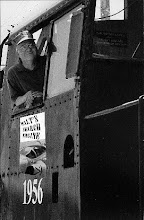Blumenthal learned, “The past is not dead, it’s not even past.”By Walter Haan,
www.war-books.com,
www.southfarmpress.comEducated, affluent young men were running for cover to avoid going to Vietnam in the 60s and early 70s. Men like former President George W. Bush, former Vice President Cheney, former President Clinton and, now we learn, Connecticut’s attorney general Richard M. Blumenthal, currently seeking the nod to run for Senator Chris Dodd’s senate seat.
Ever since the Vietnam War era, those with less opportunities have served as our Armed Forces enlisted personnel, with barely a college graduate in sight. Since the repeal of the draft, the situation has gotten worse, with military and economic systems that literally force poorer young people to join the regular forces and the National Guard.
The Angrist-Krueger analysis of World War II veterans suggests that they earned five percent less over the decades after their service than those who did not serve. Joshua Angrist’s study of the Vietnam experience calculates that military service during the Vietnam War reduced average overall earnings for white males by 15 percent. Skills acquired in the military do not make up for lost civilian work experience.
It is arrogance on our part to maintain a two-tier system where the disadvantaged that do serve are economically punished for the rest of their lives.
Former Vice President Cheney is on record as saying that it was inconvenient for him to serve in the military. That is probably how Blumenthal felt, perhaps only joining the Marine Corps reserves when it appeared he might be drafted.
During World War II singer Bing Crosby said on his radio show, the Kraft Music Hall, "Don't let anything you do undo what they died for." Blumenthal’s misrepresenting his military service to gain election does that.
General William T. Sherman, famous for Sherman's March through the old south during the American Civil War, defined war as he saw it: "War is cruelty, and you cannot refine it."
Now that our economy is in free fall, everyone is suffering including the families of our servicemen and women across the country. No one can blame our armed forces' soldiers, sailors and airmen for what is happening economically. But imagine dodging bullets in Afghanistan after reading a letter from your wife that she needs food stamps to help feed their children.
The current unemployment rate for veterans is 30% higher than for those who never served.
As Sherman defined it, war is cruelty. Not including the sons and daughters of all classes in our military is cruelty too. It means that it is only our poor who serve in the military and wind up in Afghanistan or Iraq or both. Not only unfair, it is cruel to a targeted segment of our population.
I suggest reading
Monk's War in Vietnam by a real former Marine, Frank M. Beyea (2009; ISBN: 978-0-913337-70-7). A paragraph from Beyea’s book, illustrates what Blumenthal went to great lengths with his deferments to avoid:
“I was having a hard time getting my breath back and all hell had broken loose since the explosion. Three NVA were coming at us down the trail with guns blazing, and as I tried to get off my back and into a firing position, I discovered that the entire stock of my M-14 had been blown off at the narrow part of the grip just behind the trigger. Nevertheless, I did manage to fire off a short burst that got one of the NVA and that’s when a round grazed my shoulder and knocked me down once more."
Now in his 60s, Beyea has suffered from prostate cancer, possibly due to his exposure to Agent Orange.
I wonder what the lives of the current crop of American servicemen now in Afghanistan will be like 15, 20 years from now without education, without association or connections to men and women from other segments of society. Probably not that good. Why? Because the privileged of this country allow, even encourage, men and women with limited futures to enlist for death or a debilitating injury.
Headlines ask whether Afghanistan will be Obama's Vietnam. That's the wrong question. It should be: Will America be even more divided in the future, with ill, homeless veterans from Afghanistan and Iraq roaming our streets. And will privileged Americans continue to step over these veterans as if they were dirty puddles?
William Faulkner once stated: “The past is not dead, it’s not even past.” Connecticut’s attorney general has just been reminded of that.--Copyright © 2010 by Walter Haan,
www.war-books.com,
www.southfarmpress.com
 Tell us more about home...
Tell us more about home...
